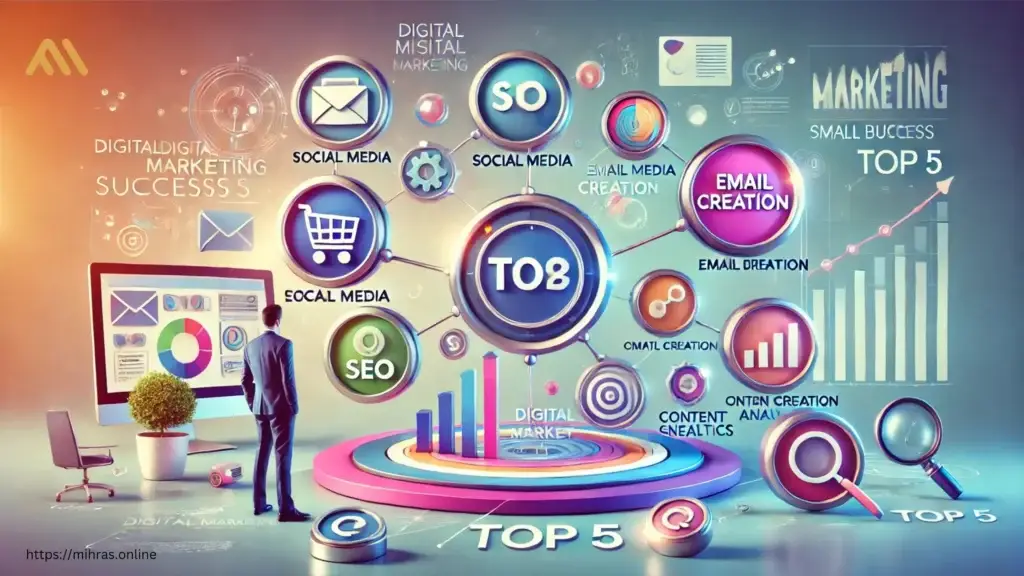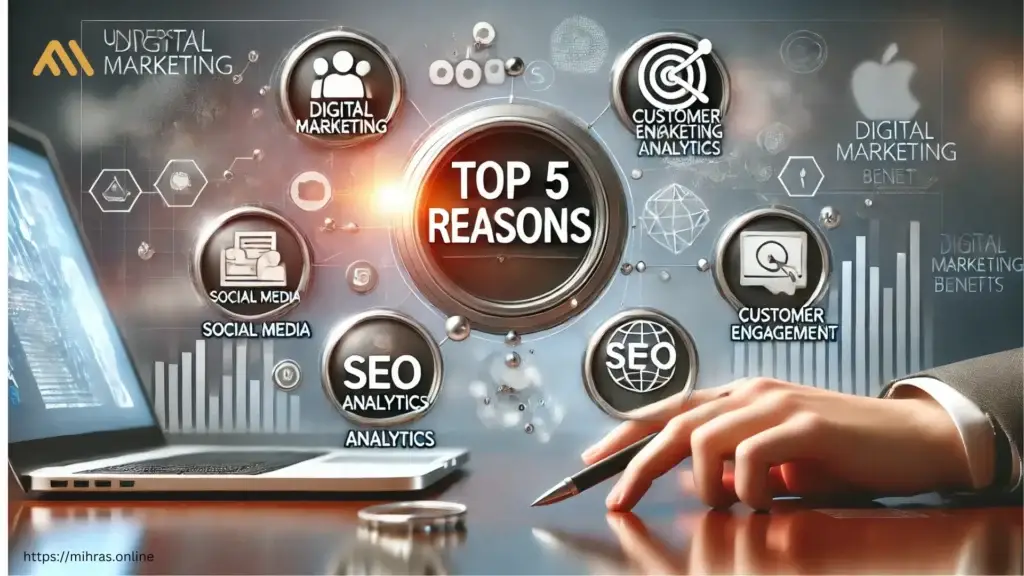In today’s digital age, having a strong online presence is no longer optional for small businesses—it’s essential. Yet, surprisingly, 43% of small businesses still don’t have a website. 🤯 Are you one of them? If so, you might be wondering: “Do I really need a website for my small business?”
The short answer is a resounding yes! While social media platforms like Facebook can be valuable tools, they’re simply not enough in today’s competitive marketplace. A well-designed website can be the difference between thriving and merely surviving. It’s your 24/7 salesperson, your digital storefront, and your ticket to reaching customers far beyond your local area. 🌍💼
But what exactly makes a website so crucial for small businesses? How does it compare to other online platforms? And are there any situations where you might not need one? In this blog post, we’ll explore these questions and more, uncovering the true importance of websites for small businesses and helping you make an informed decision for your company’s future.
Does My Business Need a Website?


The Digital Landscape
In today’s digital age, having a website is no longer a luxury but a necessity for businesses of all sizes. The question “Does my business need a website?” can be answered with a resounding “Yes!” for most small businesses. Here’s why:
Online Presence and Credibility
A website serves as your digital storefront, available 24/7 to potential customers. It establishes credibility and legitimacy for your business in the eyes of consumers who increasingly rely on the internet to research products and services.
Customer Expectations
| Customer Expectation | Website’s Role |
|---|---|
| Information Access | Provides details about products/services |
| Convenience | Allows 24/7 access to business information |
| Comparison Shopping | Showcases unique selling points |
| Contact Options | Offers multiple ways to reach the business |
Competitive Advantage
Without a website, you’re potentially losing business to competitors who have an online presence. A well-designed website can level the playing field, allowing small businesses to compete with larger corporations.
Cost-Effective Marketing
A website is a cost-effective marketing tool that can:
- Reach a wider audience
- Showcase products and services
- Provide valuable content to attract and retain customers
- Gather customer data for targeted marketing efforts
Now that we understand the importance of having a website, let’s explore whether a social media presence alone is sufficient for your business.
Do I Need a Website if I Have a Facebook Page?


You Don’t Own Your Facebook Page
While Facebook is a powerful platform for business promotion, it’s crucial to understand that you don’t have full control over your Facebook page. Unlike a website, your Facebook presence is subject to the platform’s ever-changing algorithms and policies. This lack of ownership can significantly impact your online presence.
| Aspect | Facebook Page | Your Own Website |
|---|---|---|
| Ownership | Controlled by Facebook | Fully owned by you |
| Content Control | Limited by platform rules | Complete control |
| Data Access | Restricted | Full access |
| Customization | Limited options | Unlimited possibilities |
Facebook Has SEO Limitations
Facebook pages have inherent SEO limitations compared to dedicated websites. Search engines prioritize website content over social media posts, making it challenging for your Facebook page to rank high in search results.
- Facebook content is often not fully indexed by search engines
- Limited ability to optimize for specific keywords
- Difficult to target local search queries effectively
A Website is More Credible
A professional website lends more credibility to your business than a Facebook page alone. It demonstrates a higher level of commitment and professionalism, which can be crucial for attracting potential customers and partners.
Attention is Fleeting on Facebook
The fast-paced nature of social media means that your posts on Facebook may quickly get lost in users’ feeds. A website, on the other hand, provides a stable, always-accessible platform for your content and offerings.
Now that we’ve explored the limitations of relying solely on a Facebook page, let’s delve into the numerous benefits a website can offer your small business.
Importance of Having a Website


Establishing Credibility and Trust
In today’s digital age, a website serves as the virtual storefront for your small business. It’s often the first point of contact between you and potential customers, making it crucial for establishing credibility and trust. A professional website demonstrates that you’re a legitimate business, committed to your craft and customers.
- Builds brand identity
- Showcases testimonials and reviews
- Displays certifications and awards
24/7 Availability
Unlike physical stores, your website never closes. It provides round-the-clock access to information about your products or services, acting as a tireless salesperson.
| Benefits of 24/7 Availability | Impact on Business |
|---|---|
| Increased customer convenience | Higher customer satisfaction |
| Global reach | Expanded market potential |
| Reduced operational costs | Improved profitability |
Improved Customer Service
A well-designed website can significantly enhance your customer service capabilities. By providing FAQs, contact forms, and chatbots, you can address customer queries efficiently, reducing the workload on your support team.
Competitive Advantage
In an increasingly digital marketplace, not having a website can put your small business at a significant disadvantage. A website allows you to:
- Showcase your unique selling propositions
- Highlight your expertise through blog posts and resources
- Offer online booking or purchasing options
Now that we’ve explored the importance of having a website, let’s delve into the specific benefits it can bring to your small business.
Benefits of a Website


A Business Website Makes You Look Professional
In today’s digital age, having a professional website is crucial for establishing credibility and trust with potential customers. A well-designed website serves as your virtual storefront, showcasing your products or services 24/7. It demonstrates that you’re serious about your business and committed to providing quality information to your audience.
It’s an Essential Step in Your Customer’s Journey
A website plays a pivotal role in the customer’s decision-making process. It serves as a central hub for information, allowing potential clients to:
- Learn about your offerings
- Compare your services with competitors
- Read customer testimonials
- Contact you for inquiries
A Website Increases Your Visibility
Having a website significantly boosts your online presence, making it easier for potential customers to find you. Here’s how:
- Improves search engine rankings
- Provides a platform for content marketing
- Enables local SEO optimization
It’s Essential For Local Businesses
Local businesses benefit greatly from having a website. Consider these statistics:
| Statistic | Percentage |
|---|---|
| Consumers who search online for local businesses | 97% |
| Users who visit a business’s website before making a purchase | 88% |
| Increase in revenue for small businesses with websites | Up to 45% |
It Offers Social Proof
A website allows you to showcase customer testimonials, case studies, and reviews, providing social proof that builds trust with potential clients. This validation can significantly influence purchasing decisions and set you apart from competitors who lack a strong online presence.
5 Reasons Why Your Business Doesn’t Need a Website
A. You’re Not Looking to Grow
If your business has reached a comfortable plateau and you’re content with its current size, a website might not be essential. However, it’s crucial to consider the long-term implications of this decision.
Reasons for not prioritizing growth:
- Maintaining work-life balance
- Limited resources or capacity
- Niche market saturation
| Pros of Not Growing | Cons of Not Growing |
|---|---|
| Stable workload | Limited opportunities |
| Less stress | Risk of stagnation |
| Focus on quality | Vulnerable to market changes |
B. You Have Enough Leads
When your business consistently generates sufficient leads through existing channels, a website might seem unnecessary. This situation often occurs in well-established local businesses or those with strong word-of-mouth referrals.
Alternative lead generation methods:
- Networking events
- Referral programs
- Traditional advertising
C. You’re Not Hiring Any Time Soon
If your business isn’t planning to expand its workforce, you might not need a website to attract potential employees. However, remember that a website can serve multiple purposes beyond recruitment.
D. You’re Operating in a Virtual Monopoly
In rare cases, businesses may operate in a market with little to no competition. In such scenarios, the urgency for an online presence might be less pronounced.
E. You Don’t Expect to Sell the Company Any Time Soon
If selling your business isn’t on the horizon, you might not prioritize building an online presence to attract potential buyers. However, it’s worth noting that circumstances can change rapidly in the business world.
While these reasons might justify not having a website, it’s essential to regularly reassess your business needs and market conditions. The digital landscape is ever-evolving, and staying adaptable is key to long-term success.
Final Thoughts
Final Thoughts
In today’s digital age, having a website for your small business is no longer a luxury—it’s a necessity. While there are scenarios where a business might not immediately need a website, the benefits far outweigh the drawbacks for most enterprises.
Here’s a quick summary of the key takeaways:
- Websites provide 24/7 accessibility
- They enhance credibility and professionalism
- Websites offer cost-effective marketing opportunities
- They allow for direct customer engagement
- A website gives you control over your online presence
| Aspect | With Website | Without Website |
|---|---|---|
| Visibility | 24/7 global reach | Limited to local/physical presence |
| Customer Trust | Enhanced credibility | Potential skepticism |
| Marketing | Diverse, trackable strategies | Limited, traditional methods |
| Competition | Competitive edge | Potential loss of customers |
While social media platforms like Facebook can supplement your online presence, they shouldn’t be your sole digital representation. A dedicated website offers more control, customization, and opportunities for growth.
Ultimately, the decision to create a website should align with your business goals, target audience, and resources. However, in most cases, the question isn’t whether you need a website, but rather how soon you can establish one to start reaping its benefits.


A website is a powerful tool for small businesses, offering numerous benefits that can’t be replicated by social media alone. It provides a professional online presence, increases credibility, and allows for complete control over your brand’s message and presentation. With a website, you can reach a wider audience, showcase your products or services, and provide valuable information to potential customers 24/7.
While there may be reasons some businesses believe they don’t need a website, the advantages far outweigh any perceived drawbacks. In today’s digital age, having a well-designed website is crucial for growth, customer engagement, and staying competitive. Whether you’re just starting or looking to expand, investing in a website is a smart move that can significantly impact your small business’s success.
For Website development visit us




